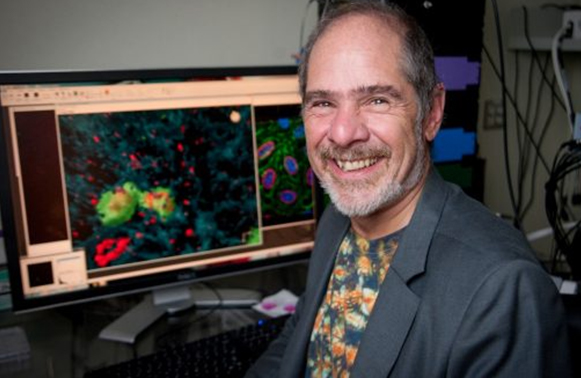Cancer Study Shows How Body’s Trash Pickup Fails in Lupus

Cancer Study Shows How Body’s Trash Pickup Fails in Lupus
October 4, 2018
Immune cells called macrophages that normally clear away the body’s trash don’t do their jobs in lupus. Now, a study of cancer partly funded by the Lupus Research Alliance may explain how these macrophages promote lupus. Douglas Green, PhD, of St. Jude Children’s Research Hospital in Memphis, Tennessee, and colleagues found that if the cells aren’t working properly, they release molecules that cause the immune system to attack other cells in the body.
Macrophages clean up dead and dying cells in the body by eating them. In patients with lupus, however, macrophages often don’t swallow this cellular trash. Instead, they release molecules called type I interferons that cause the immune system to destroy healthy cells.
Dr. Green and his colleagues have identified a group of proteins that prompt macrophages to do their job – to eat dead and dying cells. As his team had previously found, mice lacking some of these proteins have a lupus-like illness. In their most recent study, the scientists wanted to determine if these proteins affect whether macrophages destroy cancer cells. Although macrophages can attack cancer cells, tumor cells often trick them into helping the tumor grow.
Dr. Green and his team discovered that when macrophages have all of the control proteins and can eat dying cancer cells, they become helpers that protect the tumor from other immune cells. The researchers next tested what happened if they eliminated some of the control proteins, preventing the macrophages from consuming cellular debris. These macrophages instruct other immune cells to attack the tumors. They also released type I interferons like cells do in patients with lupus.
“Although this work appears, on the surface, to be about cancer, it has important implications for lupus as well,” says Dr. Green. “The results suggest that the control proteins that simulate macrophages to clean up cellular junk may malfunction or shut down in patients with lupus.”
Dr. Green and his colleagues are now trying to develop drugs to treat lupus that spur macrophages to consume the body’s rubbish.



